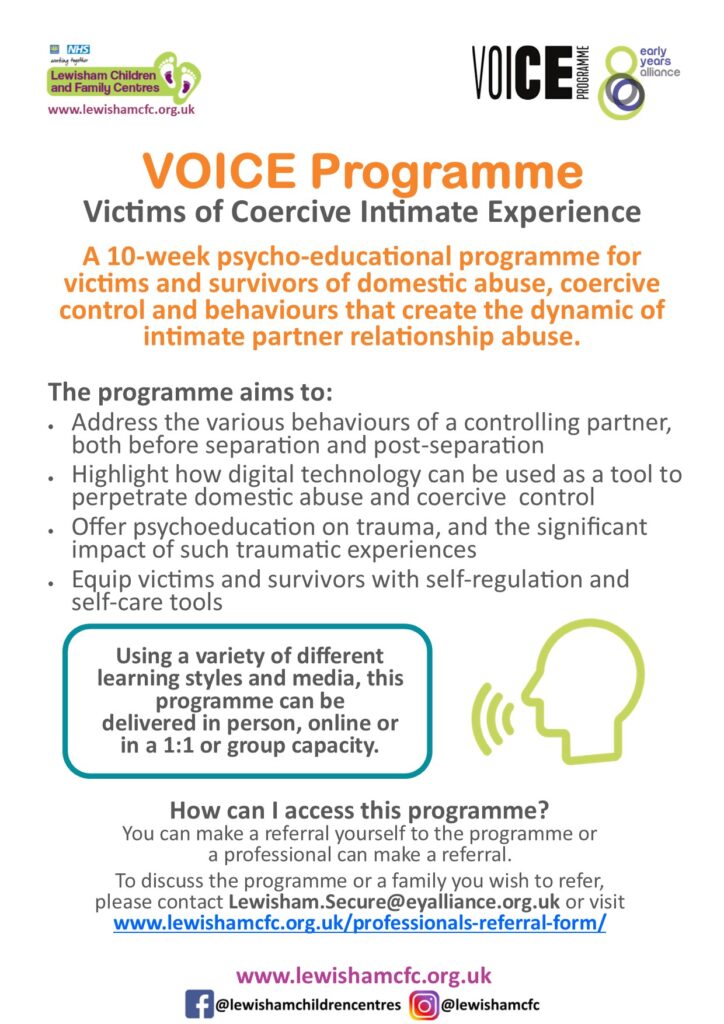The Voice Programme
VOICE stands for Victims of Intimate Coercive Experience and is a ten-week intervention for victims and survivors of domestic abuse, coercive control and the behaviours that create the dynamics of intimate partner relationship abuse.
The VOICE Programme was written in response to the feedback of victims and practitioners, and seeks to provide an inclusive environment to illuminate the behaviours of domestic abuse and coercive control both in situ and post-separation. It has a heavy focus on highlighting the impact of trauma and enables victims/survivors to develop self-care and self-regulation techniques. Themes of intersectionality are threaded throughout the programme and digital technology as a tool to perpetrate abuse is also considered throughout.
For more information on the VOICE Programme, please visit: https://voicepartnership.com/



